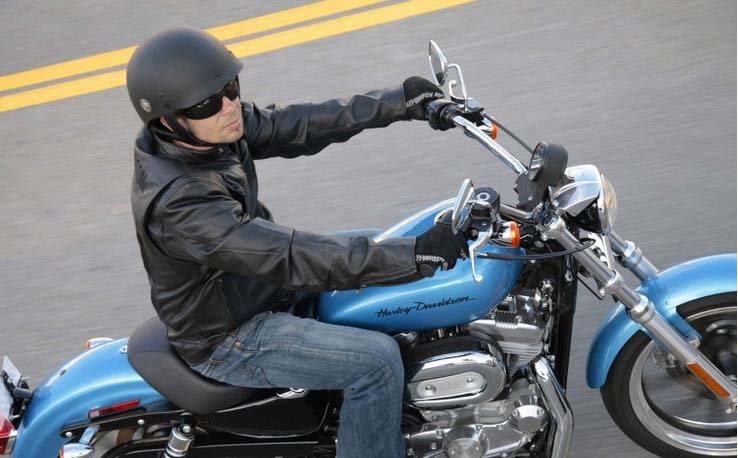 One of the most controversial issues surrounding motorcycles is whether or not riders should be required to wear a U.S. Department of Transportation (DOT) helmet. Nineteen states currently require all operators and passengers to wear a helmet. Another 28 states have partial helmet laws, while Illinois, Iowa, and New Hampshire have no helmet laws in place. North Carolina law requires that all riders on motorcycles and mopeds wear helmets that comply with Federal Motor Vehicle Safety Standard 218.
One of the most controversial issues surrounding motorcycles is whether or not riders should be required to wear a U.S. Department of Transportation (DOT) helmet. Nineteen states currently require all operators and passengers to wear a helmet. Another 28 states have partial helmet laws, while Illinois, Iowa, and New Hampshire have no helmet laws in place. North Carolina law requires that all riders on motorcycles and mopeds wear helmets that comply with Federal Motor Vehicle Safety Standard 218.
LEARN MORE
- DUI | Drunk Driving and Motorcycles
- Damages Related to a Car-Motorcycle Collision
- Fatal Motorcycle Accident Illustrates Responsibility Car Drivers Have for Protecting Bike Riders
Proponents of helmets cite study after study that conclude that wearing helmets save lives in the event of a motorcycle crash. But critics of mandatory helmet laws cite several factors in their arguments against requiring helmets. Some of the more common false factors include the following:
Helmets affect a rider’s peripheral vision: DOT-compliant helmets are required to provide at least a 210-degree vision. A person’s peripheral vision is roughly 180 degrees. This means is unlikely a helmet will interfere with a rider’s vision.
Helmets affect a rider’s ability to hear the traffic around them: The opposite of this is true. A helmet can actually help a rider hear the traffic around them because it cuts down on wind noise. The air vents that are usually built into the helmet help with this.
Helmets do not protect in serious crashes: Again, the opposite of this myth is true. Although helmeted riders have suffered serious injury and even death in crashes, there are thousands of riders who are alive today because they were wearing a helmet when the crash occurred. Statistics bear this out.
Helmets increase the risk of neck injuries because of their weight: Riders who make this claim have no data to back up this statement. In fact, studies again show the opposite is true. In one recent study, more than 1,000 motorcycle accident injury cases that occurred over a five-year period were examined. Approximately one-third of the victims were not wearing helmets.
Researchers found that riders not wearing helmets suffered neck injuries at twice the rate than those riders who were helmeted. In helmeted riders, the neck-fracture rate was 4.6 percent, while the helmetless riders suffered a neck fracture rate of 10.8 percent. Riders without helmets also had a much higher rate of ligament and soft tissue damage. This difference is because safety tests show that DOT-approved helmets do an excellent job at absorbing the impact of a crash, dispersing the impact force, and providing protection to the neck and head.
Contact a Dedicated North Carolina Motorcycle Accident Attorney
If you or a loved one has been injured in a motorcycle accident, you may be facing high medical bills and other financial difficulties. Our North Carolina personal injury attorneys understand how overwhelming these cases can be. Our Carolinas accident firm has successfully advocated for many motorcycle accident clients and has gotten them the financial damages they deserved. We are available to discuss your case. We also offer a free motorcycle injury guide which offers information that you may find helpful.